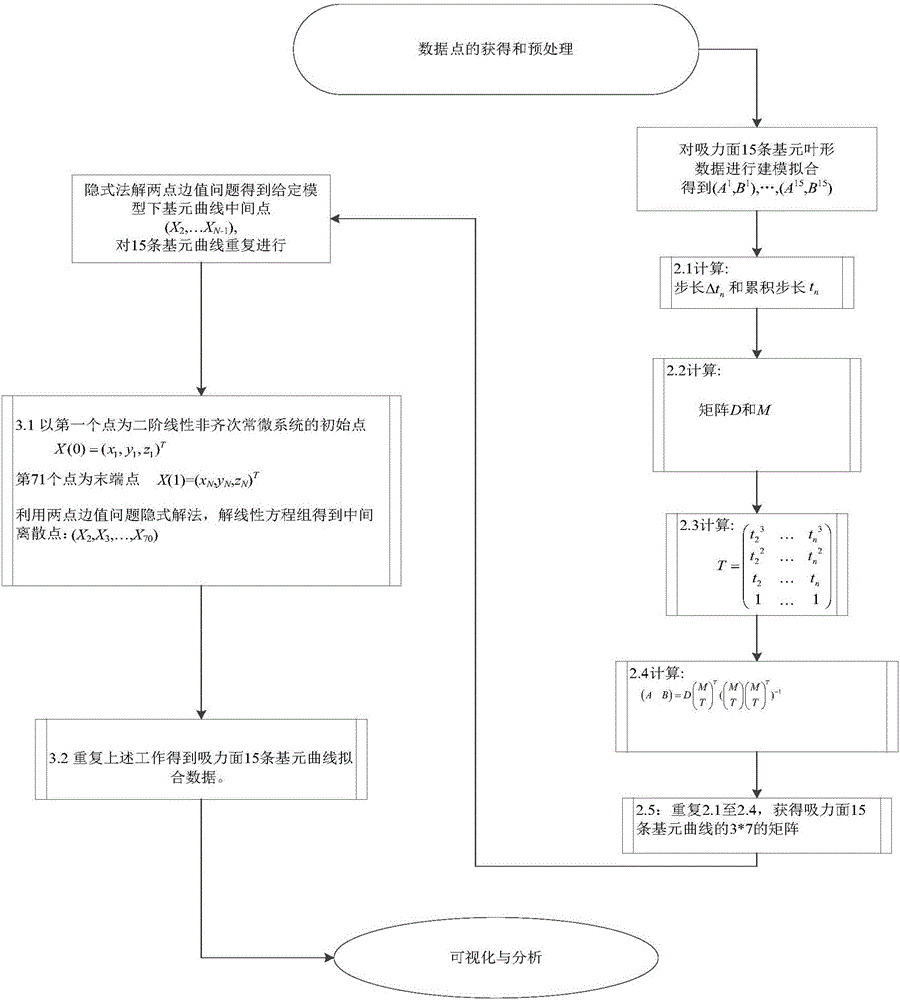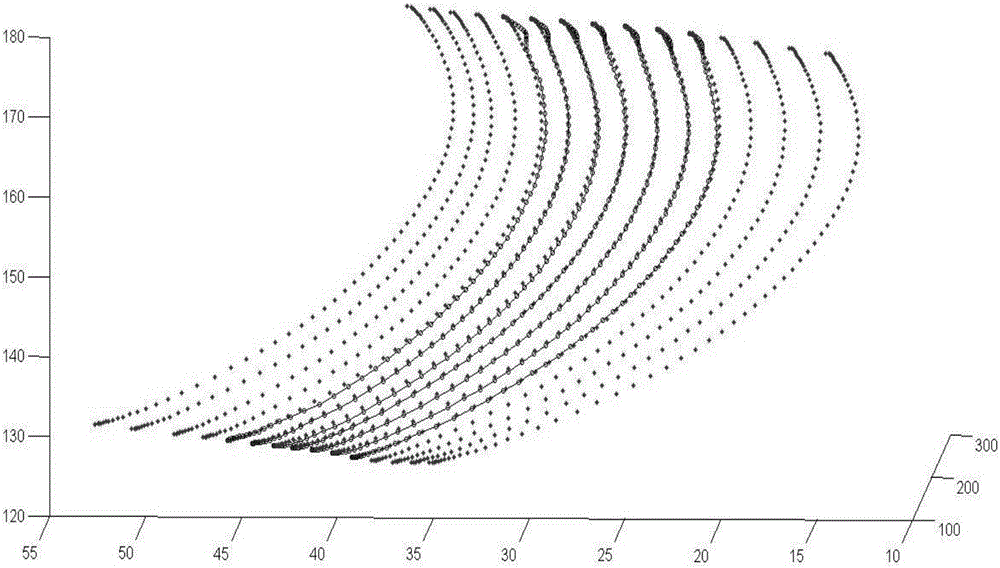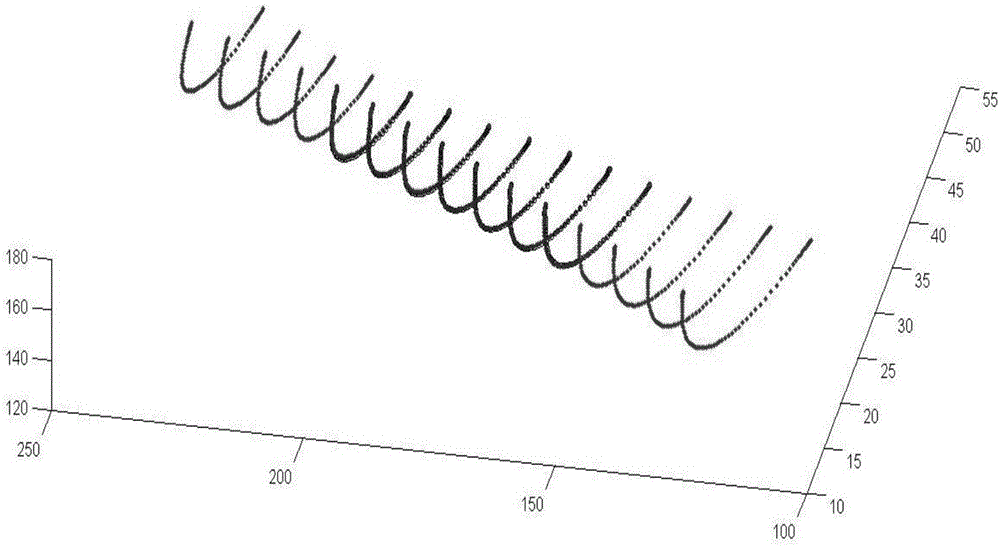Compressor blade suction surface primitive curve modeling method based on second order ordinary differential equation
A technology of ordinary differential equations and modeling methods, applied in the field of computer-aided geometric design, which can solve problems such as loss of meaning of optimization, sensitivity to errors and parameters, and inability to coincide end points.
- Summary
- Abstract
- Description
- Claims
- Application Information
AI Technical Summary
Problems solved by technology
Method used
Image
Examples
Embodiment Construction
[0038] The present invention will be further described in detail with reference to the accompanying drawings and embodiments.
[0039] The present invention is based on a second-order ordinary differential equation modeling method for the primitive curve of the suction surface of a compressor blade, the process of which is as follows figure 1 As shown, each step is described below.
[0040] Step 1: Obtain the compressor blade suction surface data set, and perform modeling and simulation on the suction surface primitive blade shape data.
[0041] (1) Acquisition and preprocessing of data points.
[0042] The invention processes the data obtained from the preliminary design of the compressor blade, and imports the data set of the suction surface of the compressor blade.
[0043] Firstly, the data is preprocessed, including: unifying the scale of the obtained data set; placing it in a suitable coordinate system through appropriate coordinate transformation; removing redundant o...
PUM
 Login to View More
Login to View More Abstract
Description
Claims
Application Information
 Login to View More
Login to View More - R&D
- Intellectual Property
- Life Sciences
- Materials
- Tech Scout
- Unparalleled Data Quality
- Higher Quality Content
- 60% Fewer Hallucinations
Browse by: Latest US Patents, China's latest patents, Technical Efficacy Thesaurus, Application Domain, Technology Topic, Popular Technical Reports.
© 2025 PatSnap. All rights reserved.Legal|Privacy policy|Modern Slavery Act Transparency Statement|Sitemap|About US| Contact US: help@patsnap.com



